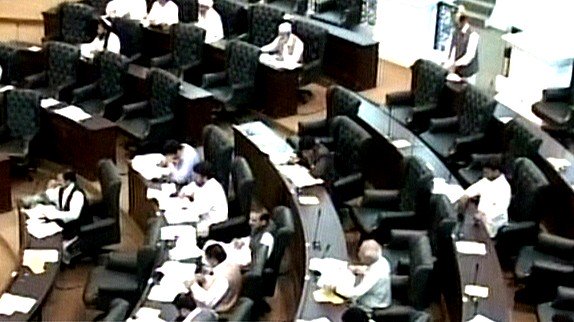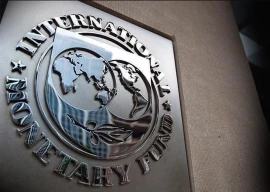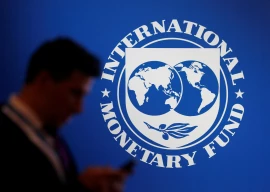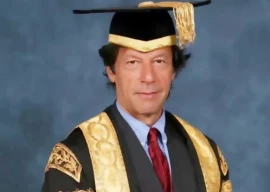
Lawmakers occupying the opposition benches in the Khyber-Pakhtunkhwa (K-P) Assembly on Friday criticised the provincial budget, saying it was a ‘traditional’ one with nothing new to offer.
Jamiat Ulema-e-Islam-Fazl’s (JUI-F) parliamentary leader Maulana Lutfur Rehman was the first to take the floor of the house. He claimed the government incorrectly tried to show the budget, which faces a Rs10 billion deficit, as a ‘balanced’ one. Rehman added the budgetary allocation of Rs66 billion was misleading as a major portion of it – Rs58 billion – actually comprised of salaries, leaving very little for development.
He also termed the allocation for health “insufficient”, saying the budget was a “traditional” one with nothing new in it.
Rehman blamed the government for ignoring the southern districts in the budget, saying people living in those areas also deserved their fair share of development. He criticised umbrella schemes to be launched under the prerogative of the K-P chief minister, claiming the opposition was not taken on board.

Another JUI-F lawmaker, Uzma Khan said the budgetary allocations for women only consist of some vocational training projects and incentives for teachers. “It seems the government wants to limit the role of women to sewing and teaching,” she said, adding the government should launch a bus service for women in Peshawar. She also urged the government to launch a metro-rail project connecting Dalazak Road to Karkhano Market to ease transport woes.
Uzma reminded the government of its promise of increasing job quota for women to up to 20%, saying the ruling party seems to have forgotten about its commitments.
JUI-F’s Shah Hussain Khan said the budget was a disappointing one, maintaining it seemed the bureaucracy did not bother asking the government before compiling it. Shah said a lot of expectations were pinned on the budget, but there was nothing concrete in the financial proposal. “The public at least deserved to see a glimpse of the promised change in this budget.”
Abdul Sattar Khan, Sardar Zahoor, Romana Jalil, Askar Pervez, Saleem Khan, Sardar Aurangzeb Nalhota, Gul Sahib Khattak and Wahihuz Zaman also debated over the budget.
Law and order
While condemning terrorist attacks, Lutfur Rehman said it was now time to ponder on why they were happening in the first place and who was behind them. In an ominous warning to other parliamentarians, he said anyone could meet the same fate as the people dying in such attacks.
Rehman said every time the situation is conducive to holding talks, negotiations are sabotaged. “It America and the [Afghan] Taliban are holding talks in Doha, why are we not doing the same?” he questioned. The government still does not have a clear policy on establishing peace, complained Rehman.
Pakistan Peoples Party (PPP) lawmaker Nighat Orakzai drew the assembly’s attention towards Friday’s suicide attack, saying it was like ‘doomsday’ for around 20 households of Peshawar in response to health minister Shaukat Yousafzai’s remarks on the floor of the house a day earlier. Orakzai stressed unless there was peace, there could not be any development or progress.
It was only after Orakzai’s intervention that the provincial assembly members offered Fateha for the victims of the blast.
Health minister Shaukat Ali Yousafzai condemned the Peshawar blast, but said the region had been passing through this ordeal for the past 10 years. “Nothing changes if you change the government. It is imperative to change policies.”
In an attempt to distance the provincial government from federal matters, Yousafzai said if his party was in power in the centre, it would have announced whether the war on terror was Pakistan’s war or not.
He maintained the provincial government would bring all parties on a single platform to chalk out a joint strategy to combat militancy, adding unless drone strikes were stopped such incidents would continue.
“These are effects of an international war going on in this region,” said Yousafzai. “When America and [Afghan] Taliban are negotiating, why is Pakistan not engaging the Taliban. We have to realise ground realities and stop running on American dictation.”
The session was later adjourned till Saturday morning.
Published in The Express Tribune, June 22nd, 2013.







1725083820-0/Untitled-design-(24)1725083820-0-270x192.webp)









COMMENTS
Comments are moderated and generally will be posted if they are on-topic and not abusive.
For more information, please see our Comments FAQ